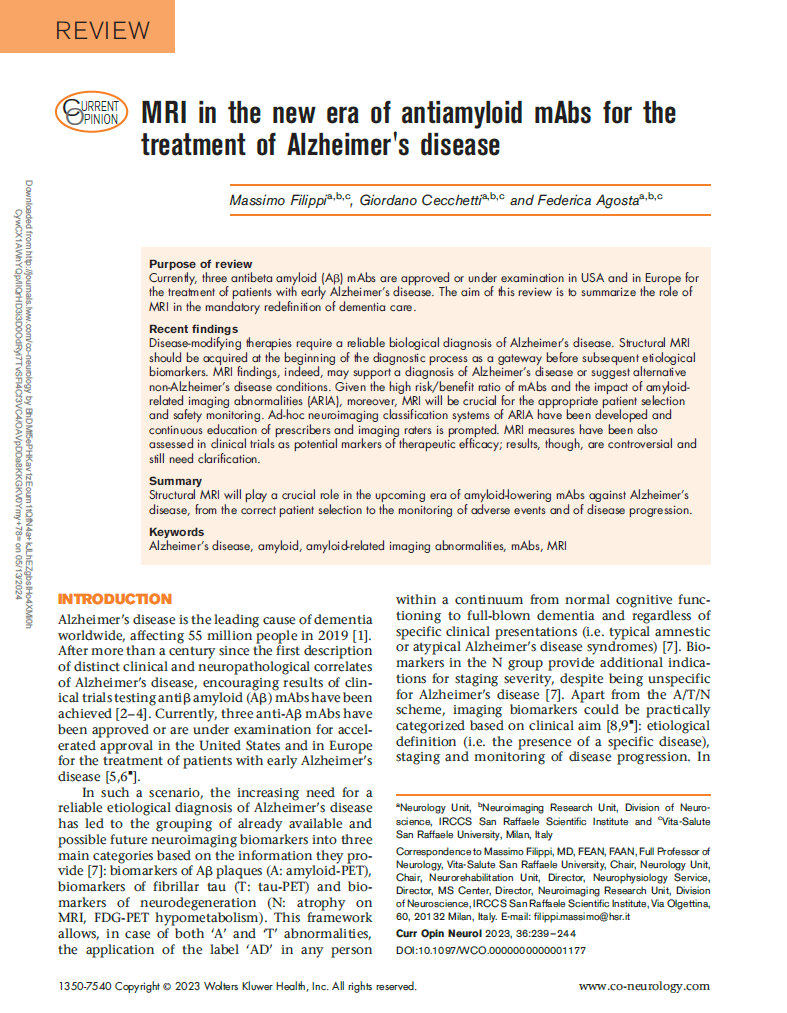MRI in the new era of antiamyloid mAbs for the treatment of Alzheimer's disease
August 2023
Abstract
Purpose of review
Currently, three antibeta amyloid (Aβ) mAbs are approved or under examination in USA and in Europe for the treatment of patients with early Alzheimer's disease. The aim of this review is to summarize the role of MRI in the mandatory redefinition of dementia care.
Recent findings
Disease-modifying therapies require a reliable biological diagnosis of Alzheimer's disease. Structural MRI should be acquired at the beginning of the diagnostic process as a gateway before subsequent etiological biomarkers. MRI findings, indeed, may support a diagnosis of Alzheimer's disease or suggest alternative non-Alzheimer's disease conditions. Given the high risk/benefit ratio of mAbs and the impact of amyloid-related imaging abnormalities (ARIA), moreover, MRI will be crucial for the appropriate patient selection and safety monitoring. Ad-hoc neuroimaging classification systems of ARIA have been developed and continuous education of prescribers and imaging raters is prompted. MRI measures have been also assessed in clinical trials as potential markers of therapeutic efficacy; results, though, are controversial and still need clarification.
Summary
Structural MRI will play a crucial role in the upcoming era of amyloid-lowering mAbs against Alzheimer's disease, from the correct patient selection to the monitoring of adverse events and of disease progression.

